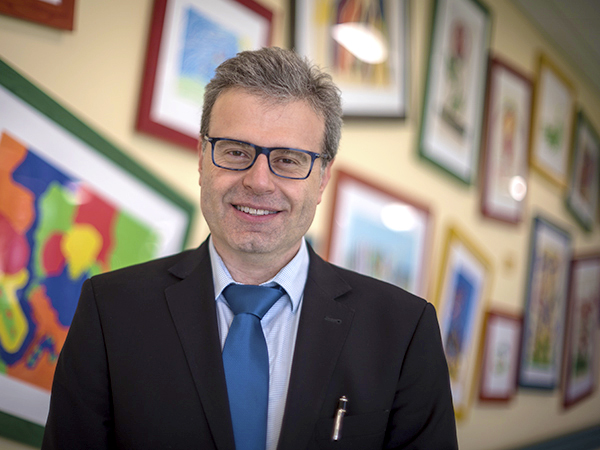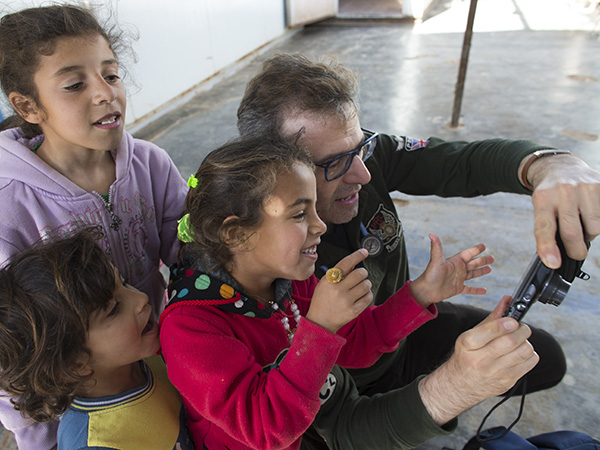Pediatrician’s healing touch transcends miles to war-torn Syrian homeland

Published in News Stories on January 26, 2017
A glance at a television screen or a click online can bring nightmarish images of the Syrian civil war, many of them photos of children maimed by bombings.
Being some 6,500 miles away from the fighting that began in 2011 doesn't mean Dr. Tarif Bakdash isn't doing what he can to ease suffering in the war zone.
Bakdash, who joined UMMC as an associate professor of pediatric neurology in September, sees patients in Mississippi in person but consults with physicians in Syria via Skype, helping them treat children in different settings. On weekends, he teaches courses online through Free Aleppo University.
On these Saturdays, he teaches physicians how to build curricula for medical school classes. Amid destruction from repeated bombings, educations are being built.
An American since 1992, Bakdash feels the pull of the country where he was born, in Damascus, and his obligation as a physician to relieve suffering.
“Every 28 minutes, we are losing a human being,” he said of the violence unleashed against rebel-held parts of Syria by the Bashar Al-Assad regime. “There are thousands of kids with no arms or legs, who have lost their sight and their hearing in bombings, and it is still happening. It is a huge mental health issue as well, as there are children who have no psycho-social support. From one area bombing massacre, 1,300 children were orphaned. Just one.”

Bakdash shows children at the Al Zaatari refugee camp a camera.
In Milwaukee Journal Sentinel coverage of one of Bakdash's medical missions to help Syrian refugees, he said, “I feel 90 percent American. I belong here. But now we have a disaster. I was born there. I grew up there. I have a moral obligation.”
Author of the 2016 book “Inside Syria: A Physician's Memoir,” Bakdash and a dozen other members of the Syrian American Medical Society met with Vice President Mike Pence in Chicago before his inauguration to tell him about their concern for the Syrian people.
“We wanted to present the Syrian suffering to the vice president,” Bakdash said, “and to offer our help. Our goal is to stop the bombings and the killings.”
Bakdash said he found Pence to be “genuinely concerned about the safety of women and children, Christians and Muslims in the region. He said he would be happy to keep in touch with us and to work together to help the Syrian people.”
Dr. Rick Barr, Suzan B. Thames Professor and chair of pediatrics at UMMC, applauded Bakdash's efforts. “Helping treat the truly helpless, as Dr. Bakdash is doing, exemplifies the high calling of being a physician. We are happy he has joined us at UMMC.”
“And I am truly honored to serve the children of Mississippi,” Bakdash said.
As of December, 4.81 million Syrians have fled the country, and inside Syria, another 6.3 million have been displaced. Since fighting began in 2011, more than one in 10 Syrians have been wounded or killed, according to the Syrian Center for Policy Research. Their figures from February 2016 show 470,000 deaths were caused by the conflict.
Bakdash has made multiple trips to Syrian refugee camps in Jordan, most recently last March with doctors from the Medical College of Wisconsin and the Syrian American Medical Society. He is planning another medical mission for this April. According to UNICEF, more than 2.5 million children are living as refugees in neighboring countries.
“Can we afford as a people to watch from a distance? Is that the moral thing to do?” Bakdash asked. “If we think about what happened to the Jews in the Holocaust, and what happened in Rwanda, we can't afford that happening again. We can't afford to sit back and watch.”


